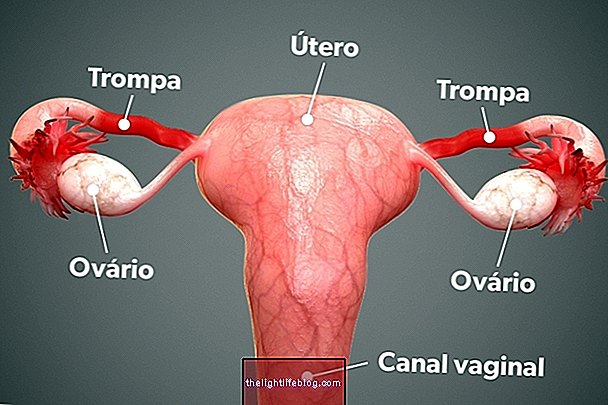Gigantism is a rare disease in which the body produces excess growth hormone, which is usually due to the presence of a benign tumor in the pituitary gland, known as pituitary adenoma, causing the organs and parts of the body to grow larger than normal.
When the disease arises from birth, it is known as gigantism, however, if the disease arises in adulthood, usually around the age of 30 or 50, it is known as acromegaly.
In both cases, the disease is caused by a change in the pituitary gland, the location of the brain that produces growth hormone, and so treatment is done to reduce hormone production, which can be done through surgery. , use of medicines or radiation, for example.

Main symptoms
Adults with acromegaly or children with gigantism usually have larger than normal hands, feet and lips, as well as coarse facial features. In addition, excess growth hormone can also cause:
- Tingling or burning in the hands and feet;
- Excessive glucose in the blood;
- High pressure;
- Pain and swelling in the joints;
- Double vision;
- Enlarged mandible;
- Change in locomotion;
- Language growth;
- Late puberty;
- Irregular menstrual cycles;
- Excessive tiredness.
In addition, as there is a possibility that excess growth hormone is being produced by a benign tumor in the pituitary gland, other symptoms such as regular headaches, vision problems or decreased sexual desire, for example, may also arise.
What are the complications
Some of the complications that this alteration can bring to the patient are:
- Diabetes;
- Sleep apnea;
- Loss of vision;
- Increased heart size;
Due to the risk of these complications, it is important to go to the doctor if you suspect this disease or growth changes.
How to confirm the diagnosis
When there is a suspicion of having gigantism, a blood test should be done to assess levels of IGF-1, a protein that is increased when growth hormone levels are also above normal, indicating acromegaly or gigantism.
After the exam, especially in the case of the adult, a CT scan may also be ordered, for example, to identify if there is a tumor in the pituitary gland that may be altering its function. In certain cases, the doctor may order the measurement of growth hormone concentrations.
How the treatment is done
The treatment of gigantism varies according to what is causing the excess growth hormone. Thus, if there is a tumor in the pituitary gland, it is usually recommended to have surgery to remove the tumor and restore the correct production of hormones.
However, if there is no reason for the pituitary function to change or if the surgery does not work, the doctor can only indicate the use of radiation or medications, such as somatostatin analogs or dopamine agonists, for example, that should be used during lifelong to keep hormone levels under control.
Was this information helpful?
Yes No
Your opinion is important! Write here how we can improve our text:
Any questions? Click here to be answered.
Email in which you want to receive a reply:
Check the confirmation email we sent you.
Your name:
Reason for visit:
--- Choose your reason --- DiseaseLive betterHelp another personGain knowledge
Are you a health professional?
NoMedicalPharmaceuticalsNurseNutritionistBiomedicalPhysiotherapistBeauticianOther
























